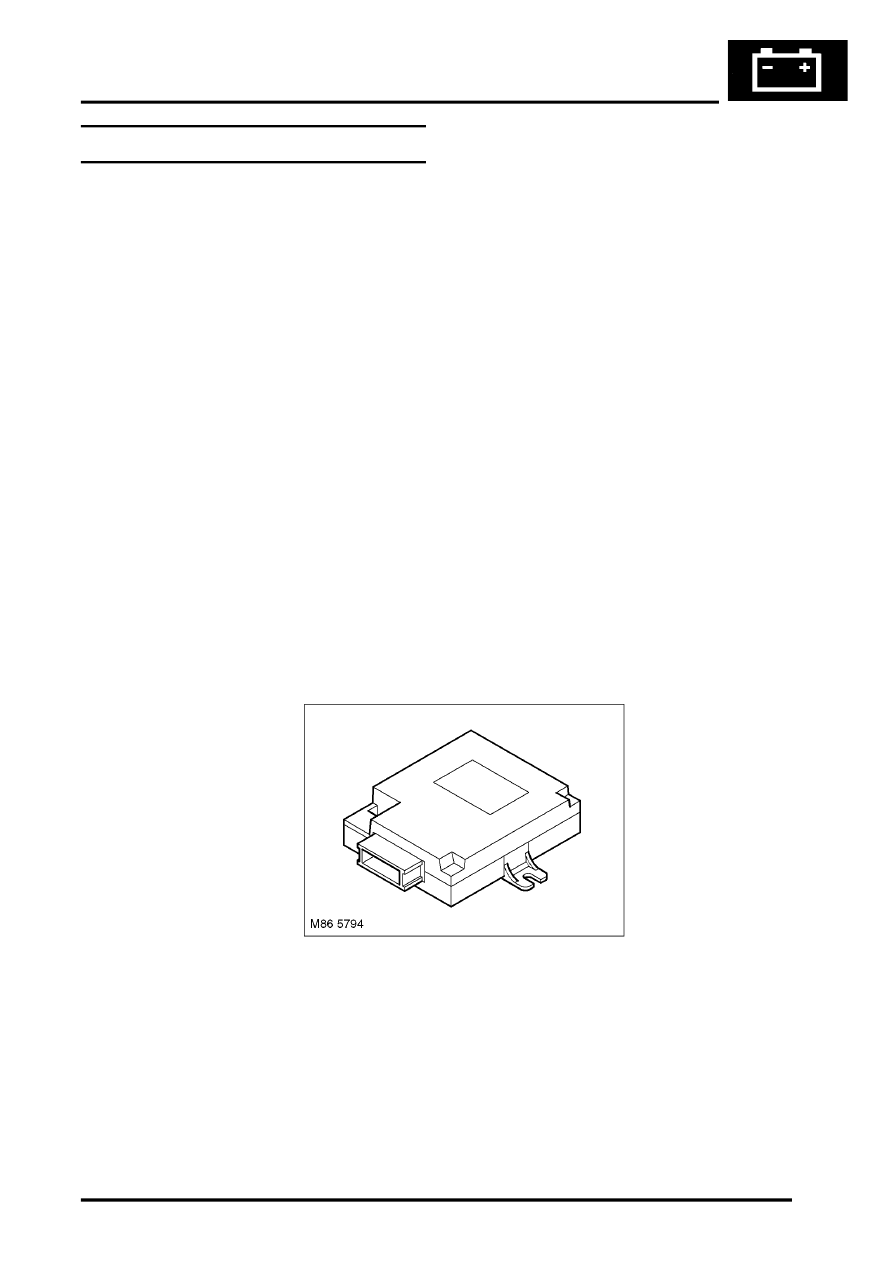L322 Range Rover System Description and Operation

ENTERTAINMENT AND INFORMATION SYSTEMS
DESCRIPTION AND OPERATION 86-8-69
Voice Recognition System Control
Introduction
Voice control enables the driver to activate important functions of the car telephone and navigation systems without
needing to operate any controls manually. This allows the driver to concentrate fully on driving the vehicle. Whenever
the driver issues one of the defined voice commands with the system active, the voice control system converts the
command into a control signal for the telephone or navigation system. The system recognises which system the
command is directed at and routes the direction accordingly. The driver is guided through the dialogues by
announcements or questions.
The voice recognition system is only available in the following language variants:
l
UK English
l
US English
l
Italian
l
German.
The voice control system understands around 50 pre-defined commands, which need to be given exactly, word for
word. The driver can prompt the system to speak a selection of the most used commands by activating the system
and giving the command HELP.
If it becomes necessary to place an emergency telephone call, it is recommended that the handset, the steering wheel
switches, the multi information display (MID) or multi function display (MFD) is used to dial an emergency number (this
presumes a number for emergency calls is stored in these systems). The reason for using the manual control is that
under stress the drivers normal voice pattern may become disturbed. This will mean that the system may not
recognise the voice commands being issued and cause the emergency telephone call to be delayed.
System Components
The following describes the components within the voice control system.
ECU
The voice recognition ECU is located in the rear loadspace under the navigation computer where fitted. The ECU
communicates with the radio and navigation systems on the I-Bus and hard wired connections.
